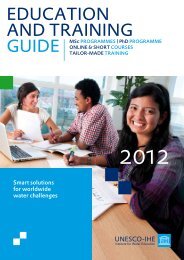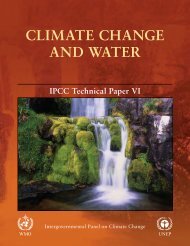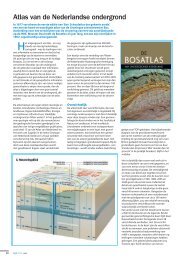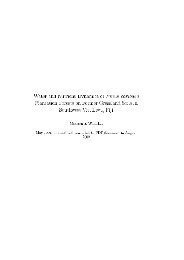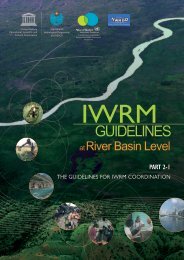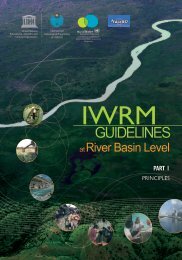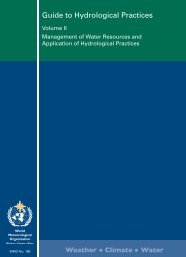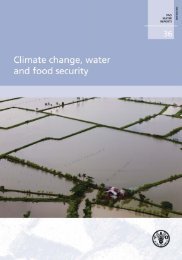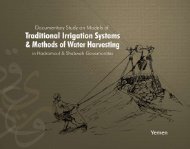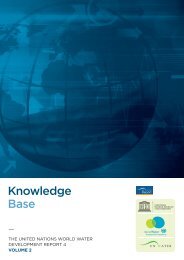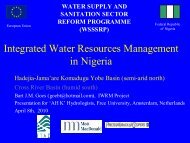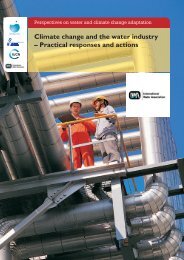Non-renewable groundwater resources: a ... - unesdoc - Unesco
Non-renewable groundwater resources: a ... - unesdoc - Unesco
Non-renewable groundwater resources: a ... - unesdoc - Unesco
- No tags were found...
You also want an ePaper? Increase the reach of your titles
YUMPU automatically turns print PDFs into web optimized ePapers that Google loves.
Chapter 2Social and economic dimensionsof non-<strong>renewable</strong> <strong>resources</strong>Mohammed Al-Eryani, Bo Appelgren and Stephen FosterConcept of socio-economic sustainabilityThere is no rigorous definition of social sustainability, although Turton and Ohlsson (1999) havedefined the related concept of ‘social adaptive capacity to water scarcity’. Social sustainabilitycontemplates consideration of society needs and goals, which will vary with time, place andpeople. The changing nature of social sustainability and inter-related risk of resource degradationare the critical considerations when developing plans for the use of non-<strong>renewable</strong><strong>groundwater</strong> <strong>resources</strong>. They imply periodic review and adjustment of plans, in response tochanging circumstances and increasing knowledge.The principles of the Brundtland Commission are :social sustainability refers to the maintenance of well-being of the people most dependent on a resource,through regulating actions that affect the sustainability of the resource while maintaining an equitableinter-generational distribution of benefitsand a socially-sustainable plan for use of a non-<strong>renewable</strong> resource would thus need to beformulated to meet three main conditions (Borrini-Feyerabend, 1997):● maintaining (or improving) well being of communities involved, by meeting as far aspossible their social, economic, cultural and environmental needs, now and in the future,● managing the actions of concerned individuals or communities that affect resource use, bystrengthening their capacity to cooperate in the management of the resource and assuringappropriate financial, legal, technical, institutional and political conditions for them toadhere to the established management plan,● address the fundamental concern about human survival not only for present and futuregenerations, by maintaining inter-generational equity in terms of benefits derived from theresource and ensure economic and social opportunities to all stakeholder groups includingfuture generations.Socially-sustainable use of non-<strong>renewable</strong> <strong>resources</strong>The use of the term ‘sustainability’ in the context of ‘mining aquifer storage’ requires some clarification.It is interpreted here in the ‘social context’ – and thus sustainability is not meant toimply ‘preserving’ the <strong>groundwater</strong> resource for generations to come, but instead reconciling the25




